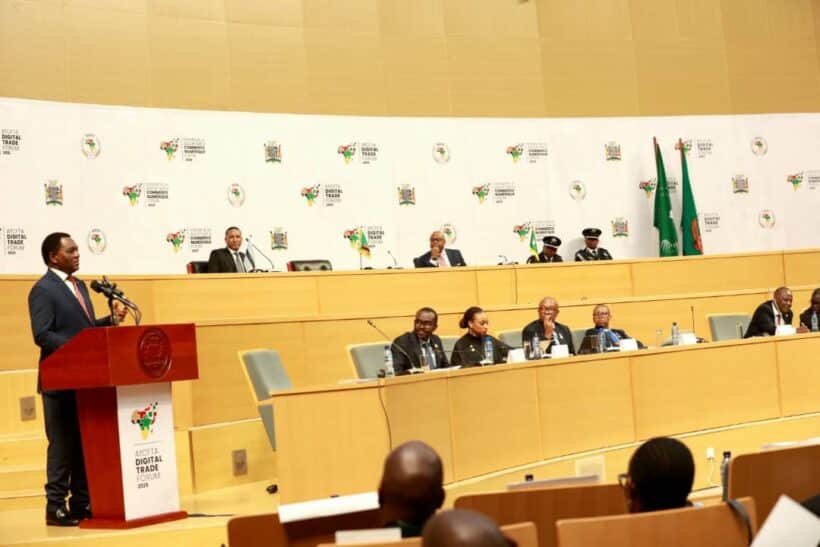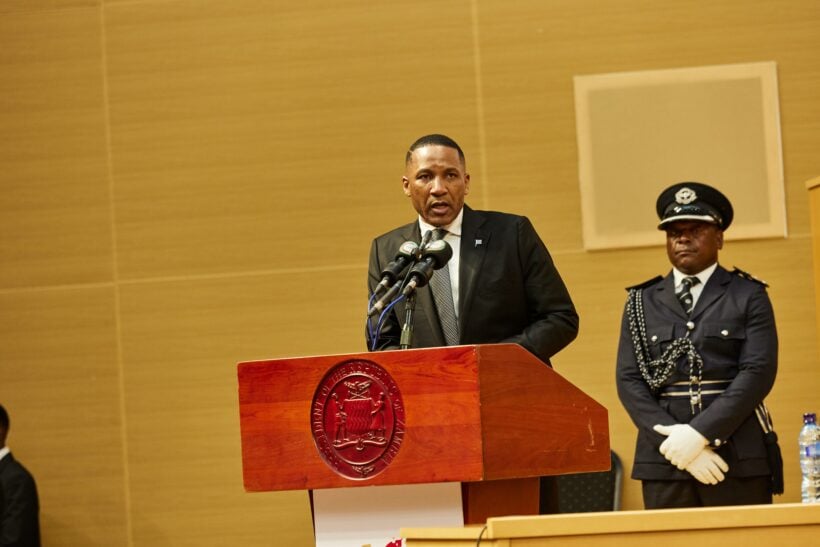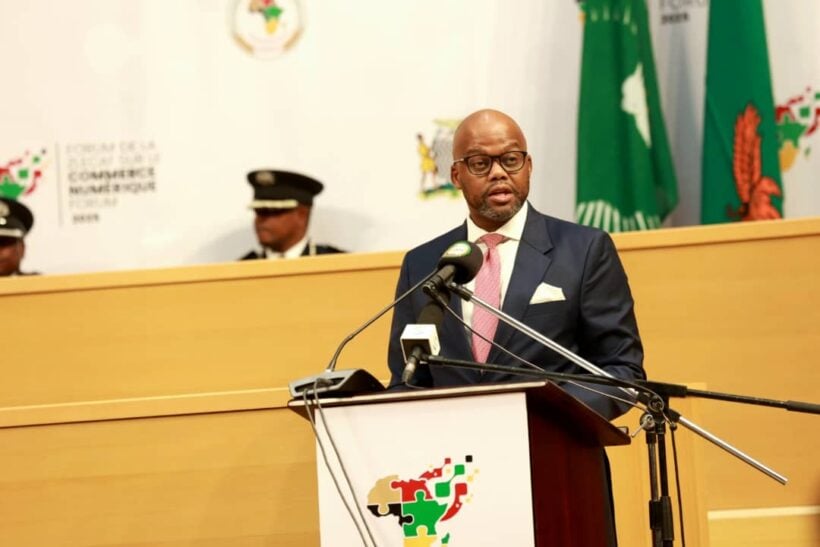African Public and Private Sector Reaffirm Support for AfCFTA Protocol on Digital Trade as Focus Shifts towards Implementation

During the Inaugural AfCFTA Digital Trade Forum (Forum) held in Lusaka, Zambia, from 8-10 May 2025, the African public and private sector reaffirmed their commitment to fast-track the implementation of the AfCFTA Protocol on Digital Trade, setting the stage for the operational phase of Africa’s digital single market. At the Forum, Heads of State, Ministers of Trade, ICT and Digital Economy, the private sector and development partners from across the continent endorsed a Call to Action to translate digital trade legal commitments into digital opportunities for businesses, consumers and governments.
The Forum brought together Heads of State, ministers of trade, industry and ICT, private sector leaders, innovators, techprenuers and development partners, among others. The discussions of the Forum focused on regulatory readiness, infrastructure investment, and ensuring meaningful participation of micro, small and medium enterprises (MSMEs), women, and youth in the digital economy.
H.E. Hakainde Hichilema, the President of the Republic of Zambia and the host of the Forum, described the Protocol on Digital Trade as “a powerful catalyst for socio-economic growth” and called on African governments to take ownership of the digital transformation agenda. “We believe in the potential of digital trade to empower our citizens, revolutionise our industries, and build a future in which no African is left behind. Zambia is open to digital trade and business, we are ready to lead,” he said.
H.E. Duma Boko, President of Botswana, also affirmed his country’s support, highlighting the necessity of translating commitments into tangible actions. “Digital trade presents an opportunity to rewire how our economies function — not only by making trade easier, but by making it fairer and more inclusive. We are committed to ensuring that our national strategies align with the continental vision under the AfCFTA,” he stated.

The AfCFTA Protocol on Digital Trade is one of the most progressive and far-reaching legal instruments on the continent’s trade agenda. It provides harmonised rules on cross-border data flows, cross-border digital payments and digital transactions, online consumer protection, cybersecurity, and digital inclusion, emerging technologies, areas critical to unlocking Africa’s digital economy, projected to reach US$180 billion by 2025 and US$712 billion by 2050.
Honourable Dr. Jumoke Oduwole, Nigeria’s Minister of Industry, Trade and Investment and Co-Champion of the Protocol on Digital Trade, emphasised the importance of building trust within the digital economy.“We cannot achieve scale without confidence in the system. That means protecting consumer data, securing payments, and ensuring digital platforms work across borders. The Protocol on Digital Trade gives us the legal tools, but success depends on practical delivery,” she said.
Honourable Parks Tau, South Africa’s Minister of Trade, Industry and Competition and Co-Champion of the Protocol on Digital Trade, echoed similar priorities, highlighting digital skills, financing, and support for youth-led businesses as key areas for accelerated implementation of the Protocol on Digital Trade.
H.E. Wamkele Mene, Secretary-General of the AfCFTA Secretariat, called on the private sector and development partners to invest in the necessary digital infrastructure. “We must build the digital infrastructure that connects rural communities to African-wide markets and secure investments that enable African fintech, startups, MSMEs, women, and youth to scale and lead. The Protocol gives us the legal foundation, now we must execute with urgency.”

Initiatives like the Pan-African Payment and Settlement System (PAPSS) and the forthcoming AfCFTA Digital Identity Project (Digi-Pass) were highlighted as tools to operationalise digital trade, reduce transaction costs, and enhance interoperability across State Parties.
The Forum concluded with a Call to Action, urging all AfCFTA institutions and national governments to prioritise coordinated implementation, promote investment in digital infrastructure, digital public infrastructure and ensure inclusivity in the emerging digital market.
For policymakers and investors, the message from Lusaka was clear: Africa’s digital trade agenda is no longer on the horizon, it is underway.
AfCFTA website link: https://au-afcfta.org/about/







